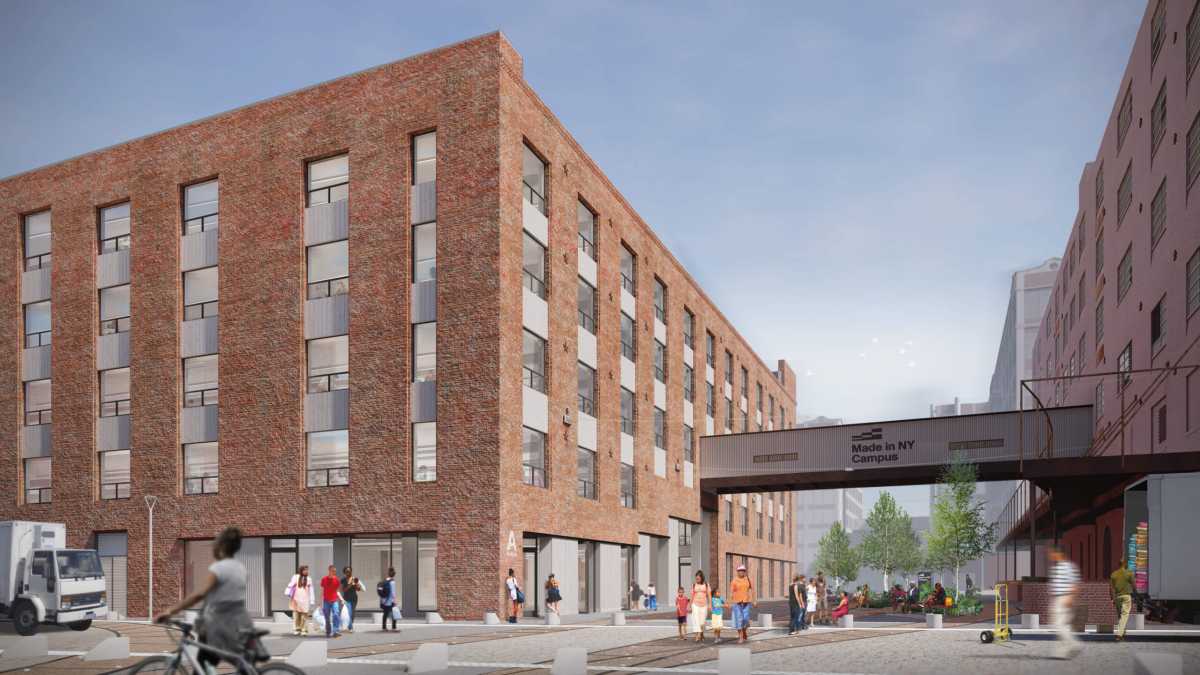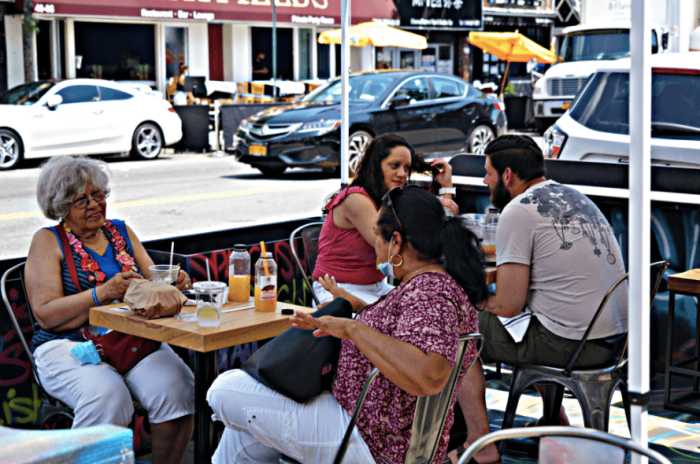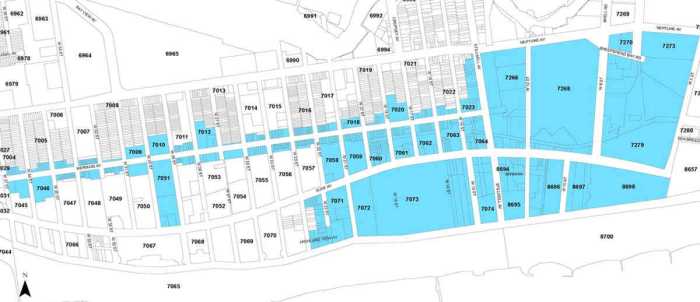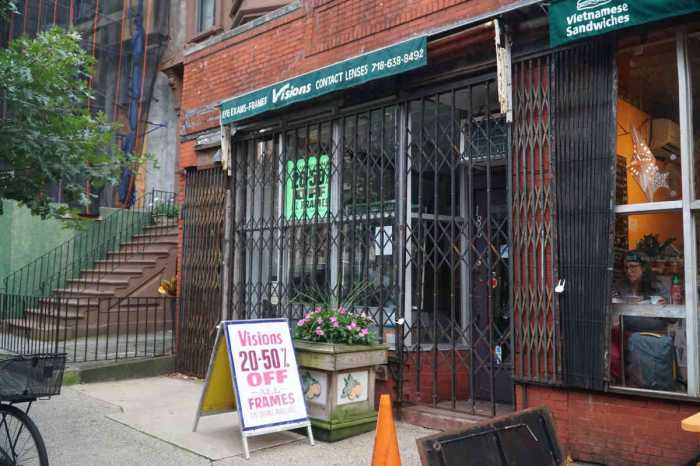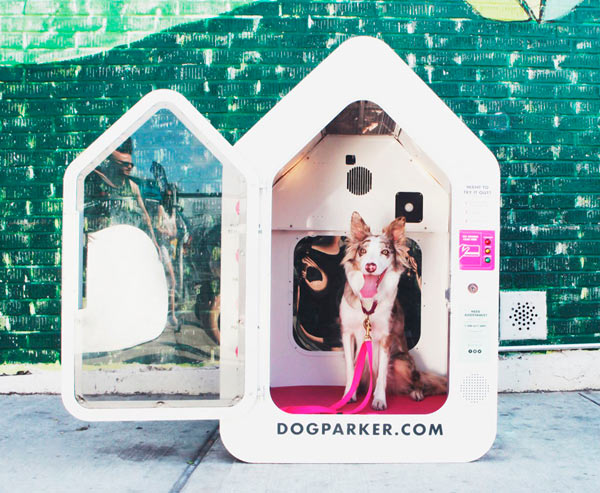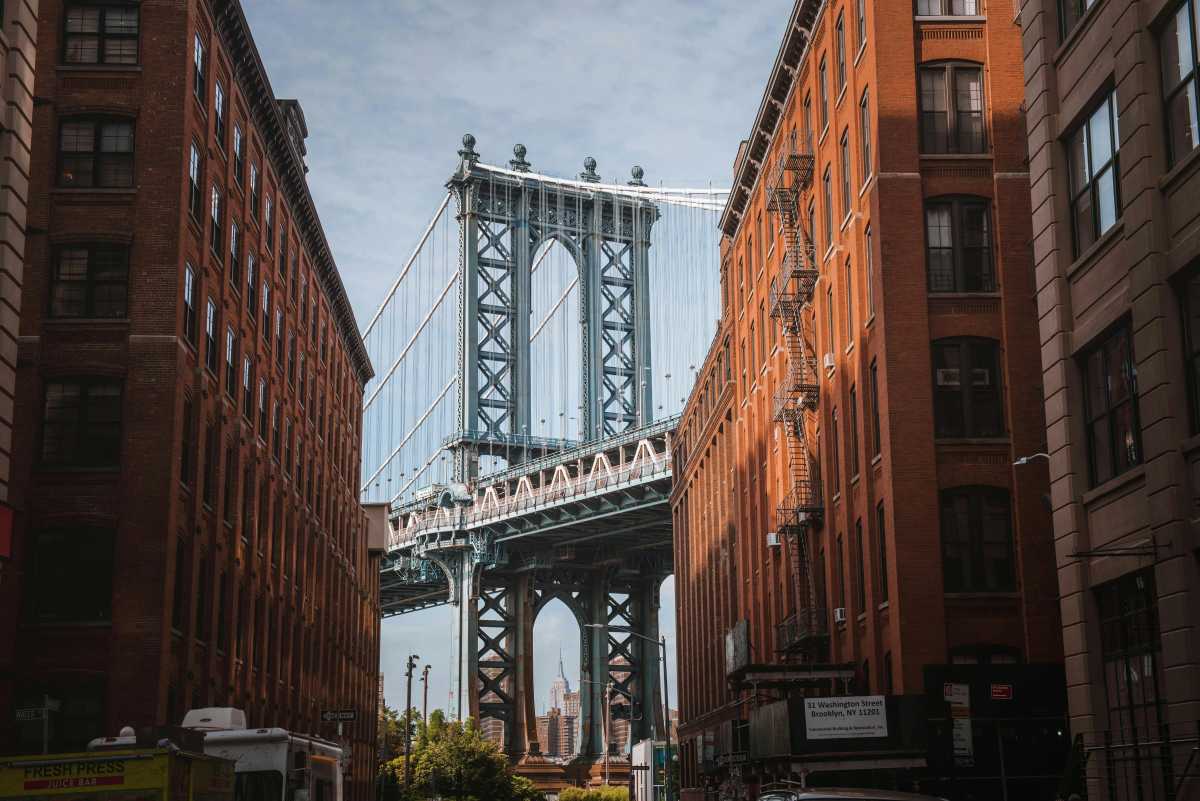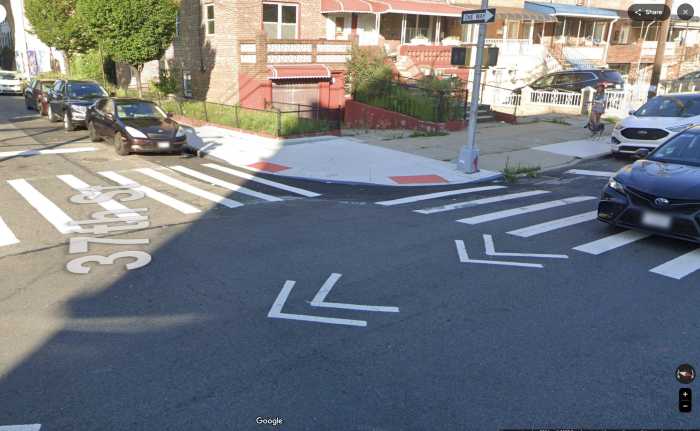Before London, Paris, Milan and Tokyo, the Big Apple kick-started 2022’s series of fashion weeks — with Brooklyn’s Bush Terminal at the center.
After attending a nonprofit fashion show in Manhattan, the city’s mayor, Eric Adams, announced the first anchor tenant at Sunset Park’s fashion- and film-centric Made in New York Campus: sustainable fashion and design school Slow Factory.
The institution will be the first to call the hub home after the media production facility’s ongoing restoration, and is expected to facilitate the creation of 460 fashion jobs onsite, train 500 people and grow existing jobs in related businesses — bringing in an estimated $57 million in direct economic output to New York City.
“Prioritizing sustainability can go hand-in-hand with the fashion industry,” said Adams in a statement. “The redevelopment and creation of new fashion jobs at the Made in New York Campus in Brooklyn will only solidify our place as the city of swagger.”
“Fast fashion,” or the process of mass-producing clothing at low-cost, has enormous environmental and social impacts on our planet, according to environmental advocates. The industry is responsible for 10 percent of human-caused greenhouse gas emissions, 20 percent of global wastewater, and uses more energy than the aviation and shipping sectors combined, according to Columbia’s Climate School.
Of the 75 million factory workers around the world, it’s estimated that only 2 percent earn a living wage. Workers often live in areas with waterways polluted by the chemicals from textile dyeing.
As creators move away from “fast fashion,” designers are opting for “slow fashion,” comprised of more sustainable innovations, designs, methods, materials and fair trade alternatives.
.@NYCMayor joined IMG’s #InTheBlk @FashionWeek show earlier today. #ChangeFashion pic.twitter.com/1XuHu8RHDI
— NYC Mayor's Office (@NYCMayorsOffice) February 13, 2022
To further the city’s commitment to a more eco-friendly fashion industry, the Adams administration will also partner with New York City Economic Development Corporation — a development nonprofit that promotes business expansions — to advance the MiNY Campus project. The building will shelter long-term free office and classrooms for organizations that advance racial equity, diversity, and inclusion in the media and fashion industries.
Since the $136 million project was first announced in 2017, Climate justice organizations have called for a focus on sustainability and green manufacturing in Council District 38, an area of Brooklyn home to the second-largest concentration of garment manufacturers and employment in New York City.
“Sunset Park is an environmental justice community to its core and that is why it is so important to have Slow Factory’s focus on sustainable fashion and racial equity lead the Garment Manufacturing Hub,” said US Rep. Nydia Velazquez, who represents the area on the federal level. “The path to reducing climate change runs straight through neighborhoods like Sunset Park, and the Garment Hub ought to stand as a model for communities across the country to create sustainable products while empowering residents to be a part of this change through meaningful workforce development and empowerment.”
Slow Factory will establish a multidisciplinary institute with accessible educational programming on climate justice and climate solutions, work training, a research and development lab and a manufacturing facility for regenerative material like plant-based leather under the same roof.
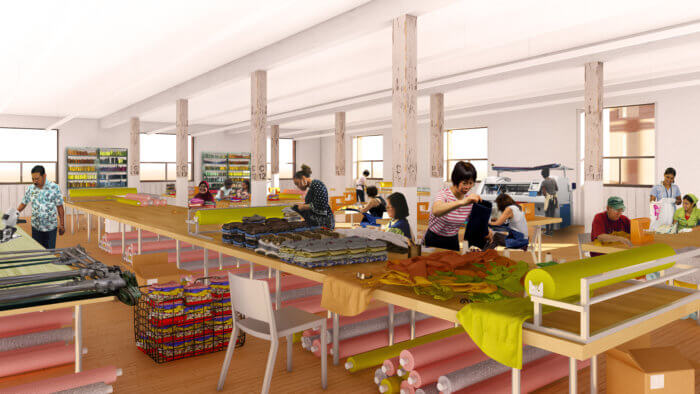
“We are working diligently to fill a critical educational gap that focuses on climate justice and human rights while creating a community hub for education and skills training,” said Slow Factory Executive Director Céline Semaan.
Gilbane Development Company is constructing the MiNY campus, outsourcing 60 percent of the participation needed for the project to New York City-certified Minority- and Women-Owned Business Enterprise subcontractors and suppliers.
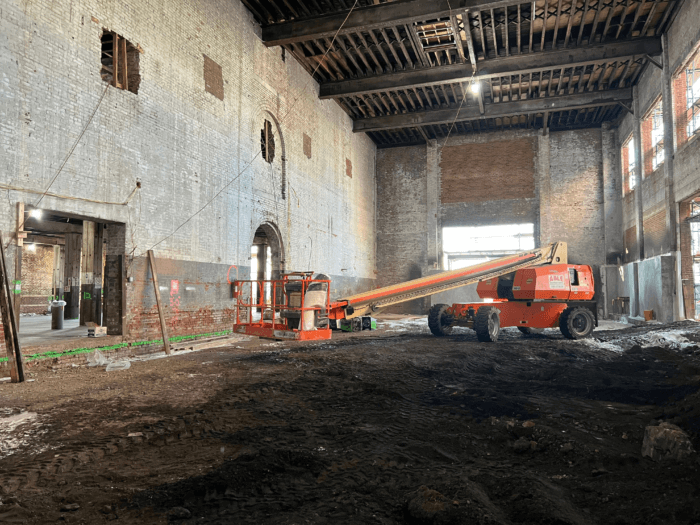
The hub will also include workspaces — ranging from 2,000- to 40,000-square-feet — for Brooklyn-based companies. The installations are expected to be ready before the end of this year.
“We expect to work closely with Slow Factory and all partners to create career pathways that connect residents to jobs on our working waterfront, for local residents and especially youth of color — that extends all the way into leadership roles,” said area Council member Alexa Avilés.


